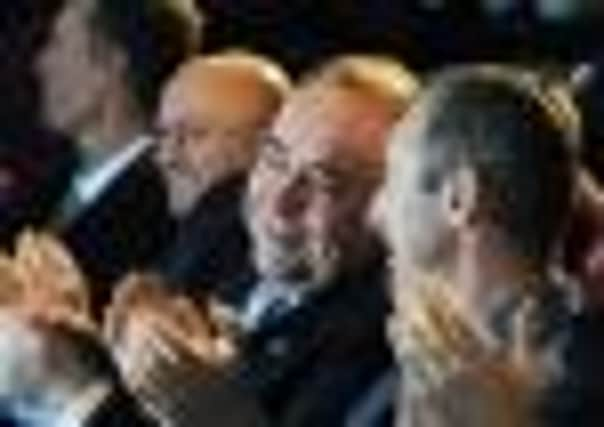Jeanne Freeman: Women’s voices not being heard in the independence debate


In all of that time, many words have been written and spoken about process and what each side of the debate sees as their dividing lines. All interesting, all important.
But for a decision almost everyone describes as the most important voters in Scotland will make in 300 years, there has been a glaring gap: the voices of women have been, more or less, absent.
Advertisement
Hide AdAdvertisement
Hide AdThe decision we will all make in 2014 isn’t a decision confined to process or procedures. It’s about whether or not we believe that creating the kind of Scotland we want to live in is best served by independence, or by staying as part of the union.
Whether or not we keep the Queen or the pound is important, but it’s not actually what our decision is going to be about. And to get there, we need to hear all the voices of Scotland.
I have been arguing since the 1970s that women should be listened to and heard on an equal footing to men. Making that argument now, I have been struck by the responses. So very many of them have been the rehashed, reheated views and fears – and occasionally, insults – I thought we’d answered and got past. For the avoidance of doubt, here are some facts and statistics.
Only last week we learned that there are now more women in Scotland than men – 158,000 or so in fact. Women work in industry and education, in health and the arts, in the public sector and in the home.
The 2010 Scottish Household Survey found that 69 per cent of men and 61 per cent of women are in some form of paid work – although the pay gap remained at 11.9 per cent. And women also suffer disproportionately from poverty, low pay and poor living conditions. So, in straightforward arithmetic, there are more of us, and, in terms of equality, we should have an equitable share in this debate.
But the facts and stats (and there are many more) are not the core argument. Figures just add weight for those who like figures. The real point is that this wealth of talent, opinions and ideas is there, at our fingertips. If listened to, it can better inform our thinking and decisions about independence.
Think of it another way. Think of what we lose out on if the voices of the majority of voters in Scotland are not heard. The real-life experiences missed. The hopes for the future, the worries about change, and the concerns about daily living – all lost to the debate about the most important decision all of us are likely to take in our lifetime. And think about what not encouraging those voices to speak out and creating the space and time for them to be heard means for our future as a country, independent or not.
So, in these early days of our debate, it is time for all of those so far ignored to demand that we are heard. Not only heard in the coming months on this question, but heard around other tables, too. In public boards and private ones, editorial boards and the parliamentary chamber. Equality made real by important steps others, like Norway, have taken before us. And their investors haven’t fled, their stock market didn’t crash and the sky did not fall in.
Advertisement
Hide AdAdvertisement
Hide AdAfter 40-odd years, I’ve come to the conclusion that it’s not enough to argue the rational, logical case. It’s not enough to ask, nicely or otherwise. It’s way past time to accept the small moves that have been made and, too often, taken away again when those with power think it safe to do so. The possibility of independence has turned my mind to the possibility of a written constitution. We don’t have that, yet. But we could. We could have a constitution that enshrines equality and fairness. A constitution that promotes human rights, and our responsibilities to each other.
In 1999, Donald Dewar said of our new Parliament: “This is about more than our politics and our laws. This is about who we are, how we carry ourselves.” The debate between now and 2014 will say much about all of us and how we “carry ourselves”. And it will say a lot about just how much we mean it when we argue for a Scotland where everyone can realise their potential, where we are all equal, regardless of our gender, our ethnic background, our religion or our sexuality. «
• Jeane Freeman is a public affairs consultant who was a senior special adviser to Jack McConnell when he was First Minister